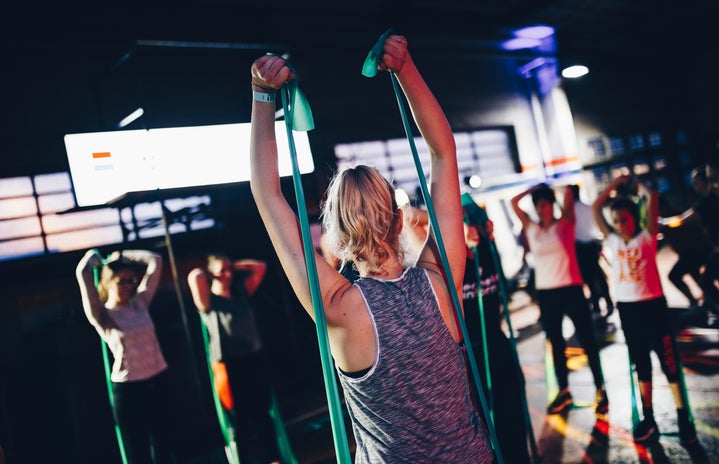I died on March 20, 2010.
My life is so abnormal and miraculous that it sometimes makes my most atheistic friends question their views. If I died, why am I here? What brought me back? I struggle with these questions almost daily. I wish doctors could help me understand it better, but even they don’t know how I’m alive.
It all stared in kindergarten at recess. While my classmates were busy running around on the playground playing tag, I was complaining about chest pain. I remember trying my best to ignore it because I wanted to join in on the fun that my classmates were having. It wasn’t until I was going down the big, blue slide that I couldn’t ignore that pain anymore. As soon as I got to the bottom, I stood up and collapsed to the ground.
That would be the first of many times.
Fainting became a recurring issue for me. I stopped keeping track of how many times I had passed out once the total reached 30. I would frequently pass out in random places like in church, on field trips, in school and during soccer games. At such a young age, this was definitely not normal. I went to a cardiologist and he told me that I had low blood pressure. The doctor said if I ate salty snacks throughout the day to keep my blood pressure elevated, I would be fine.
But I was not fine. I kept passing out. I went back to the cardiologist, and I was given an external heart monitor. The heart monitor was a portable device that kept a log of my heart’s activity. It was a black box covered in buttons that recorded electrical signals from my heart through a series of electrodes, which were attached to my chest. Wearing it made me feel like a robot. I had played soccer, softball and basketball my entire life, and having this device attached to me really interfered with my activities. The worst part was that everyone could see it on me. Most of my classmates were too young to understand the severity of it, and the attention the monitor gave me was more negative than anything.
I had this device for about a half a year, and my cardiologist still insisted that nothing was wrong. For years I would see him, and at every visit he told me that I was just fine. So for a while I lived my life normally, but deep down I knew that something wasn’t right. I would still pass out all the time for no reason and have severe chest pains. The chest pains felt like someone was taking a knife and stabbing my heart repeatedly.
My uncle worked for a company called Medtronic, which sells medical equipment. He introduced me to a team of cardiologists in New York. I went to the hospital and they ran a series of tests and decided that I needed to have a loop recorder implanted in my heart wires. This small device, which looked like a USB flash drive, was implanted under the skin of my chest. The loop recorder acted as a mini-computer, recording everything that was happening with my heart.
On March 22, 2010, I came home from high school to find both of my parents outside waiting for me. They both had strange looks on their faces, ones that I had never seen before. They told me that after all these years, the doctors had finally figured out what was wrong with me.
All that time when I thought I had just been fainting, my heart had been repeatedly flatlining. The loop recorder had discovered that on March 20, I had flatlined for about 20 seconds. I didn’t know what to think—had I really died and come back to life? I didn’t know that someone’s heart could just stop for 20 seconds and miraculously start up again, but I was just relieved that they had finally figured out what was wrong.
I had to have emergency surgery as soon as possible. I wasn’t allowed to drive, because I would put others and myself in danger if I flatlined at the wheel. The doctors had to remove the loop recorder and implant a pacemaker. They’re still not sure why I flatline, and, unfortunately, they can’t prevent it from happening. However, when I do flatline, the pacemaker will jump-start my heart and bring me back to life.
The pacemaker was implanted on March 25, 2010. The surgery went extremely well, and the scar is not nearly as big as I thought it would be. Now, I have two scars around my heart—one from the loop recorder and one from the pacemaker. The doctor told me I could get plastic surgery to get rid of the scars, but I didn’t want to. They are part of who I am. I need to have surgery again every 10 years because the battery will eventually die. The average age of those with a pacemaker is about 75. Being only 17 at the time, I definitely brought that average down a bit.
I’ve had several episodes when my heart stopped after the pacemaker was implanted, and I’m still alive, so it must be working! My pacemaker gives me the freedom to do anything I want to do, which is incredible. Over the summer, I went skydiving in the Swiss Alps. I also went parasailing in New Jersey. I’m even planning to run the Boston Marathon next year. I’m so lucky to be able to do anything that a person without a pacemaker can do.
The only bad thing about my pacemaker is that the frequencies between it and electronics will clash and cause me a lot of discomfort. When I type on my laptop, like I’m doing as I write this, the clashing frequencies between my pacemaker and my laptop cause so much pain that I have to leave the room at times. I also have to hold my cell phone on my right ear, since that ear is farther from the pacemaker than my left ear. I also can’t go through normal airport security because the alarm will sound when it detects the metal case of my heart device.
I see my condition as a blessing in disguise. My perspective on life is completely different now. I live every day as if it were my last, since I truly never know if it will be. I’m really spontaneous; I go on fun adventures and try to do as many interesting things as I can. Life is about happiness, and if my condition has taught me anything, it’s that life is too short to be anything but happy.
People may think my heart is weak, but I like to believe that my heart actually makes me a stronger person. I would not be the same without it.

